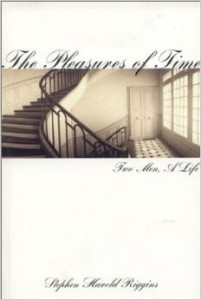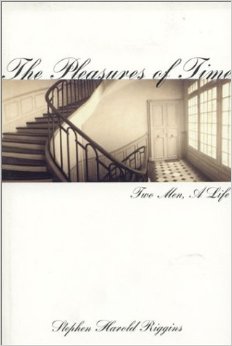 The Pleasures of Time: Two Men, A Life
The Pleasures of Time: Two Men, A Life
by Stephen Harold Riggins
Insomniac Press
310 pages, $16.95 (paper)
Stephen Harold Riggins and Paul Bouissac have shared an interesting life, having traveled the world and crossed paths with such intellectual luminaries as Claude Lévi-Strauss, Allan Bloom, Michel Foucault, A. J. Greimas, and John Cage. But in The Pleasures of Time: Two Men, A Life, Riggins attempts to provide more than a romantic travelogue or eyewitness intellectual history. His book is both biography and autobiography—as well as literary criticism, cultural history, sociological study, and tenderly crafted family album. This is not to say that the book lacks focus; each of these approaches is necessary in its turn, as Riggins celebrates his decades-long relationship with Bouissac, a scholar, novelist, circus aficionado, and reluctant subject.







